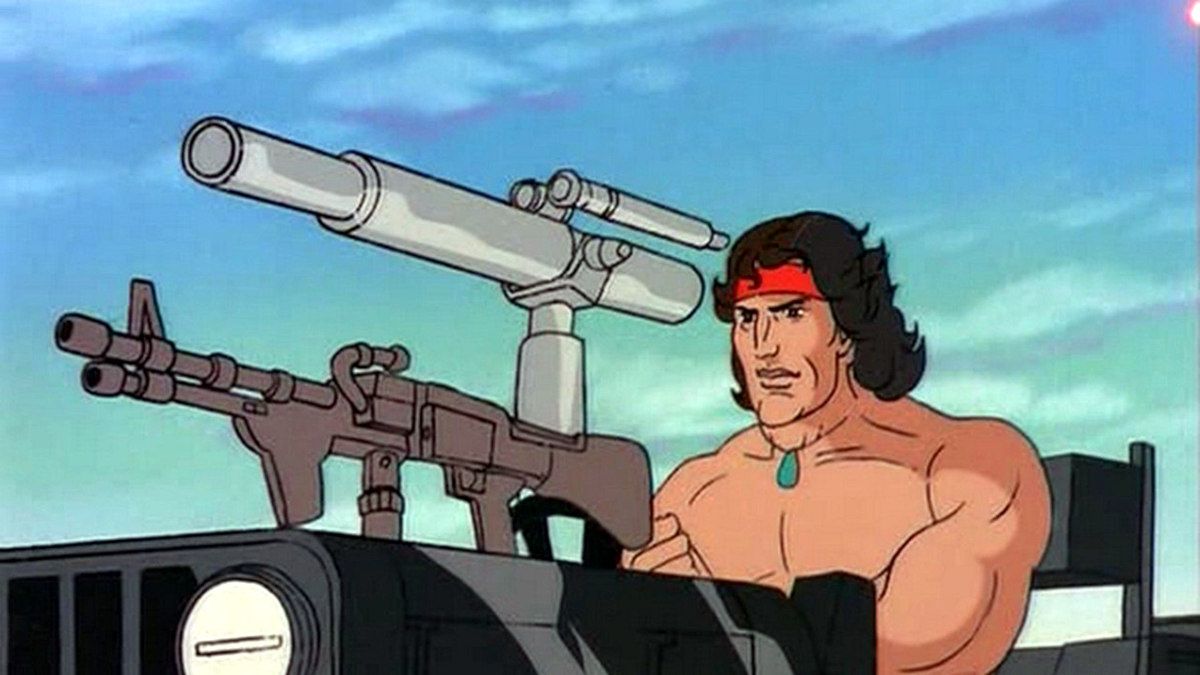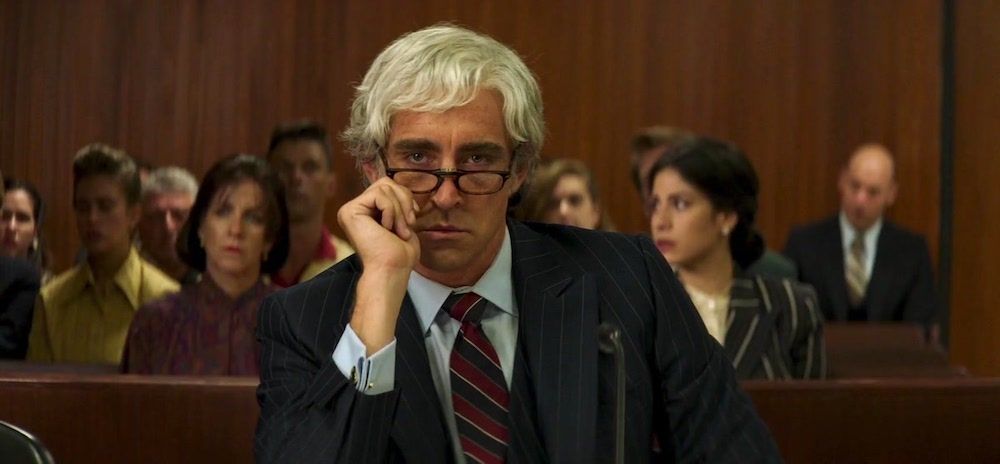
John Rambo has been a cartoon character since 1986; something to recall before putting the boot into Last Blood for being a scuzzy exploitation film about a traumatised Vietnam vet hacking evil Mexican sleazeballs into thin slices. If Sylvester Stallone were still working for Cannon Films it could have been called Medal of Horror, and maybe that’s the title of the Grindhouse movie Rambo has apparently dozed off watching to produce this morbid grumble of loss and regret. It seems an entire opening rescue sequence has been removed from UK and US prints, the cheapest route to an Extended Director’s Cut yet devised; the fact that the snipped scene apparently has a local sheriff thanking Rambo for his help and is therefore the exact moment at which the 37-year arc gets resolved is less Grindhouse and more just grim.
A reader of the small print might be mildly distracted by the mock-up photo of a young Stallone in military service, given the factual record on that score; or by the obvious parallel between film and real life of grievous personal loss that has arisen since the last Rambo, and wonder whether it played any part in Last Blood’s existence. Stallone co-wrote the thing and keeps control over his own characters after all—more control than, say, Liam Neeson, to name another rescuer of relatives. Science will have to decide whether Rambo’s perpetual suffering—and Rocky Balboa’s for that matter—has played any part in Sly’s weathering of occasional threats of cancellation, when Mel Gibson is still nailing himself to the floor in his films but remains in the dog house for more serious crimes.
The subject of Last Blood’s PTSD-redemption arc could have been any old soldier, and the only good reason for it to be Medal of Honor winner John Rambo is so that Brian Tyler can quote Jerry Goldsmith’s original trumpet theme on the soundtrack while Sylvester Stallone rides a horse. Which is a pretty good reason when you hear it. I reviewed Last Blood for Sight & Sound.

Also: for the November Sight & Sound print magazine (and online here) a review of Driven, the second film lately to tackle the infamous bits of John DeLorean’s story. Two simultaneous films on a topic either means a major book sale has taken place somewhere or the theme has struck a nerve, in this case presumably the sight of blithe capitalists who usually swan through life actually being brought to book somehow somewhere some of the time, in something close to wish fulfilment. Which is not what happened to DeLorean—a minor detail.
 Tetsunori Tawaraya Fuzzy Cat
Tetsunori Tawaraya Fuzzy Cat